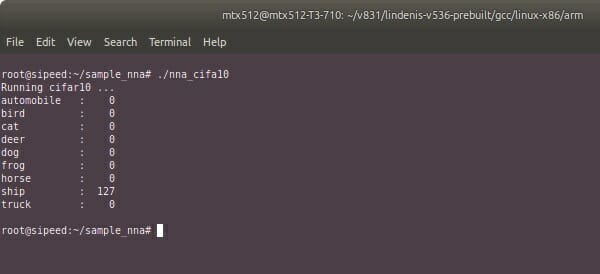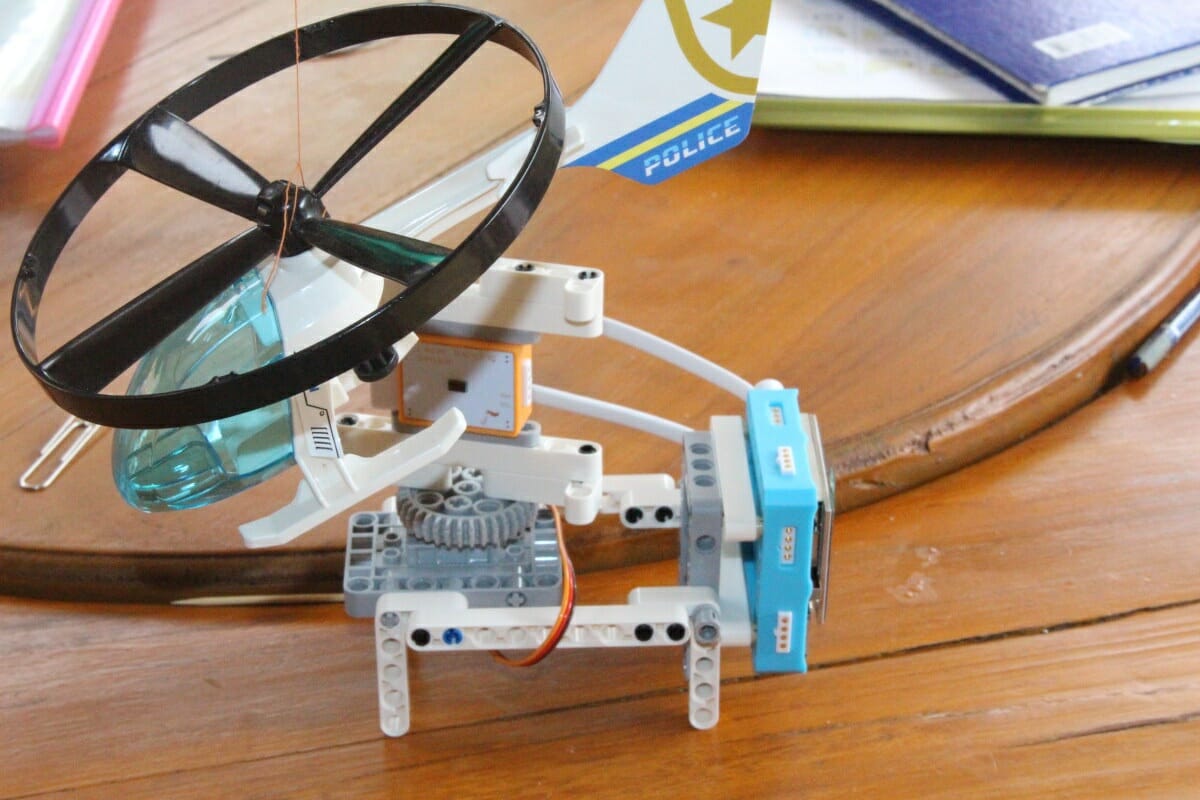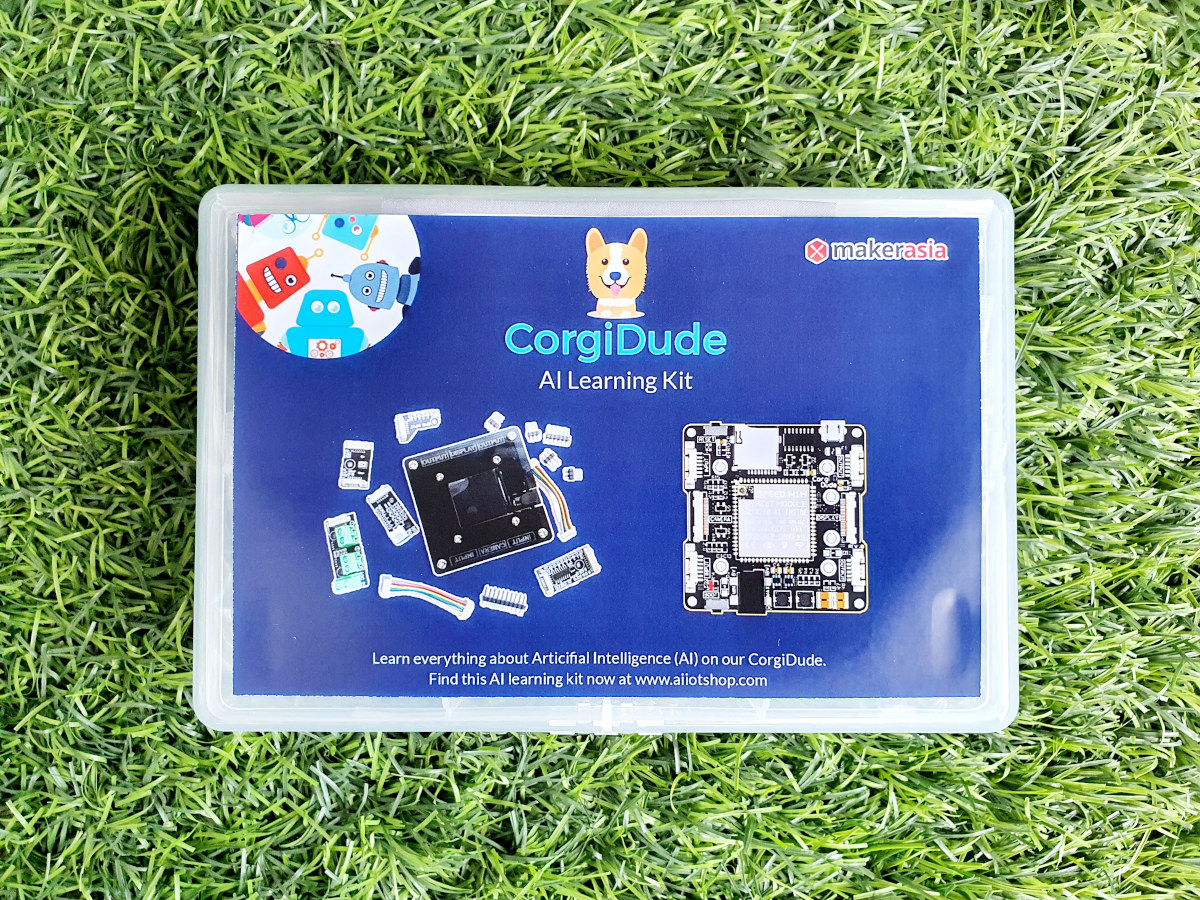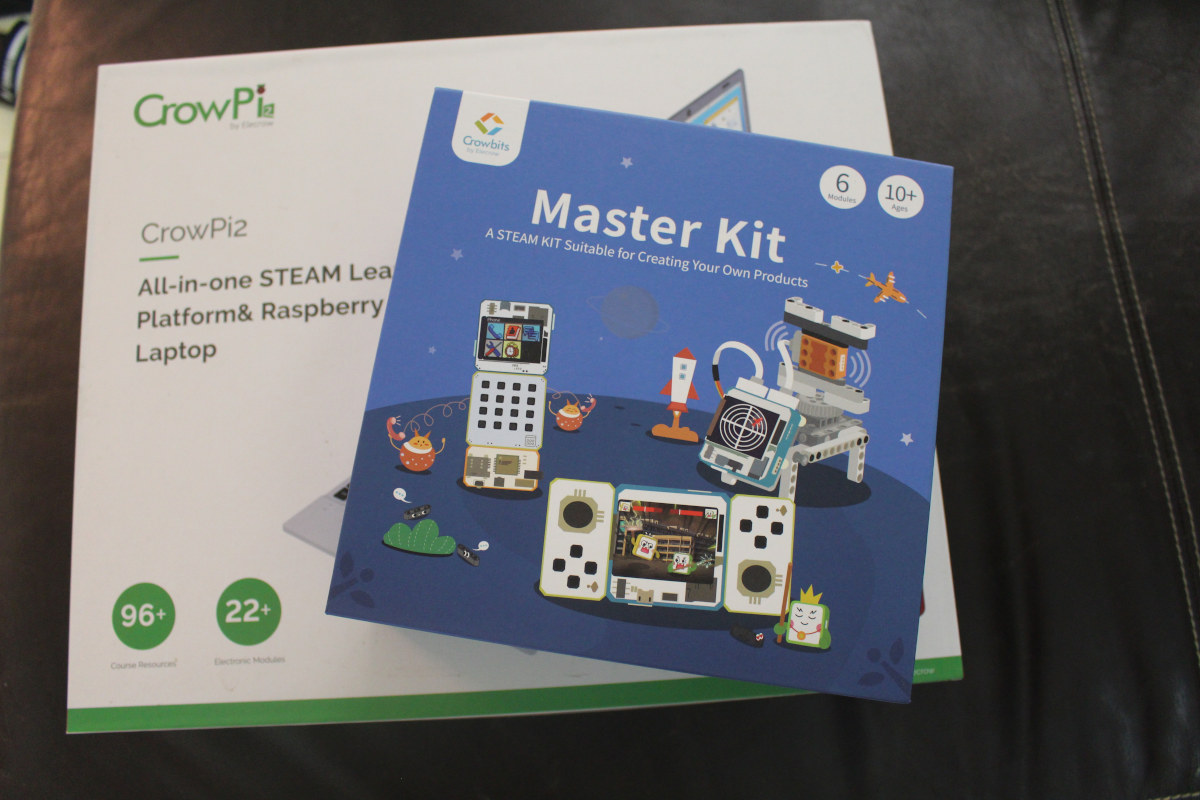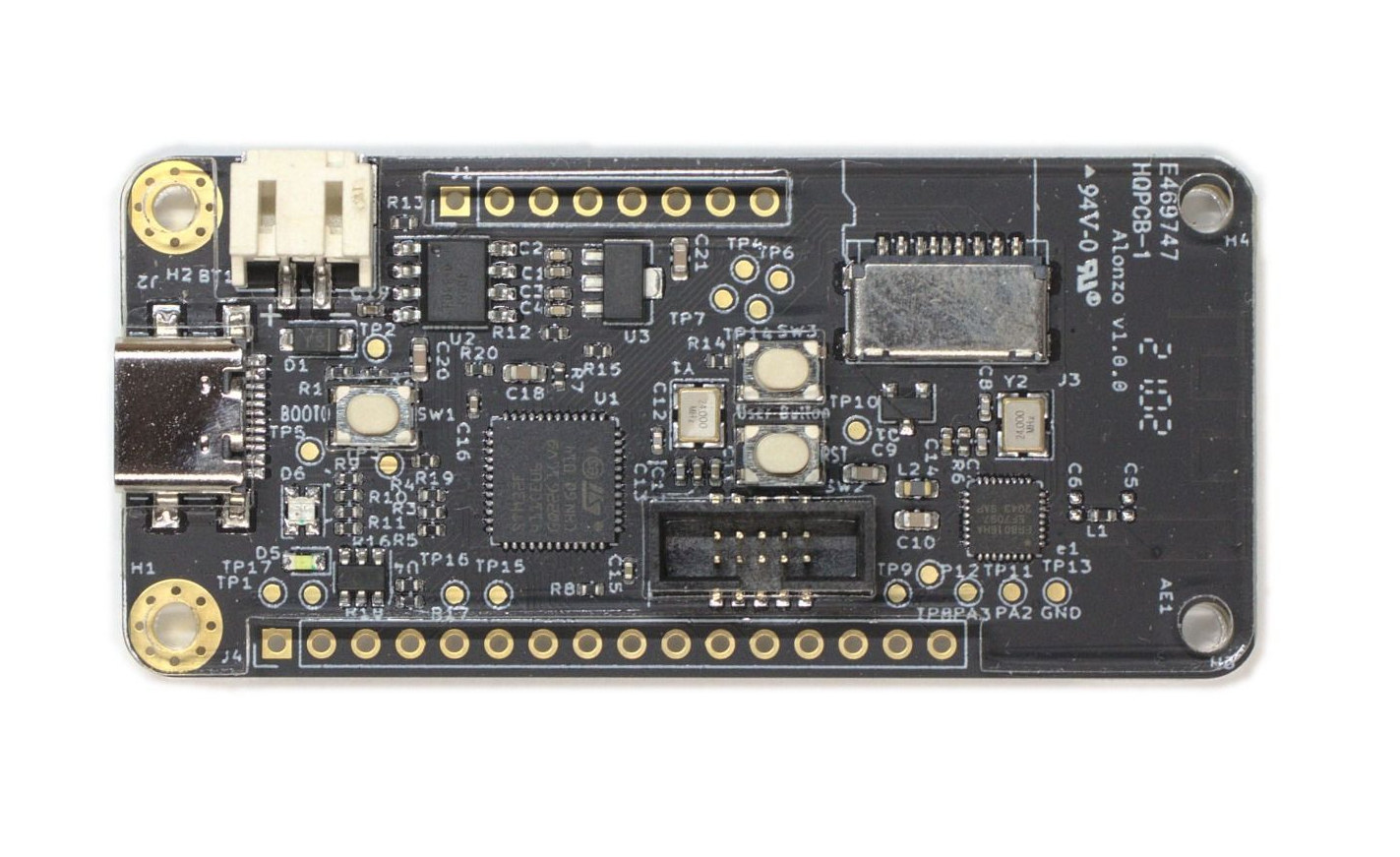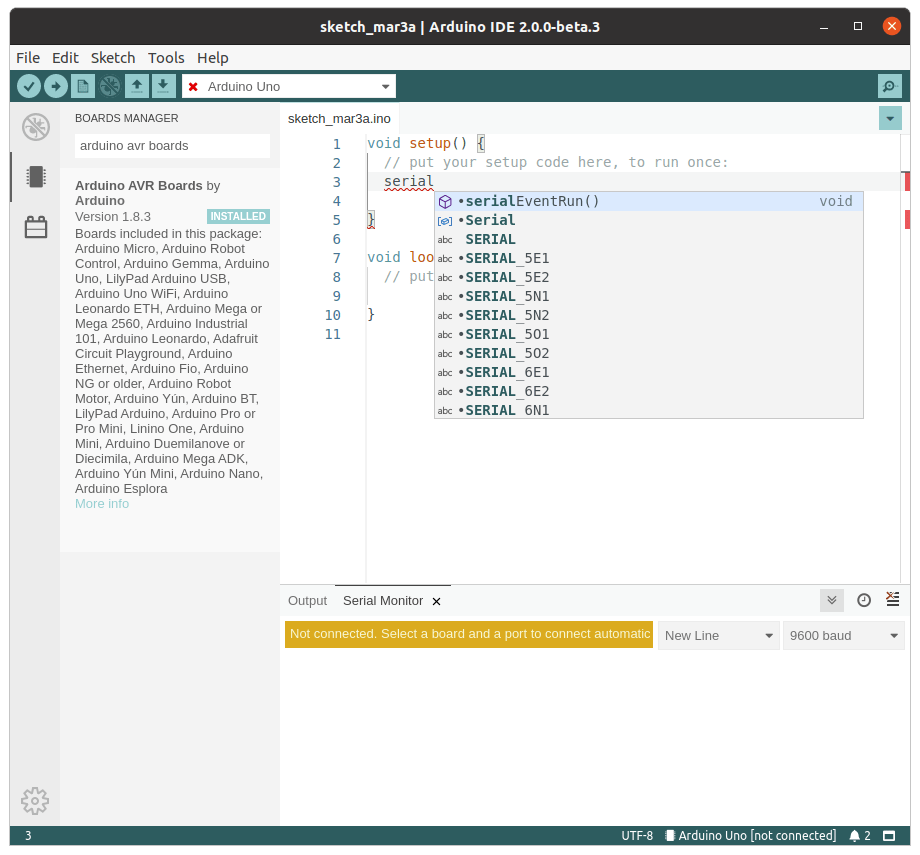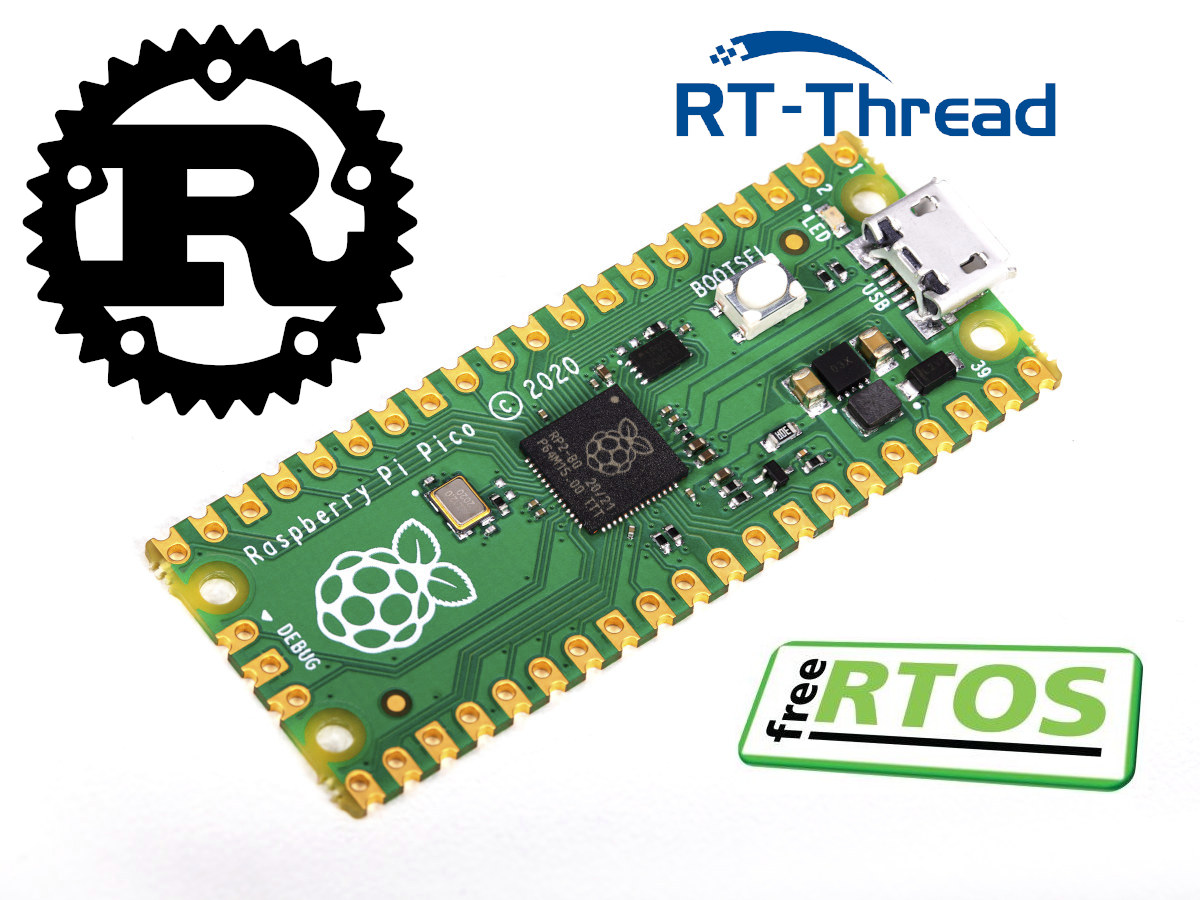China has now an alternative to the Google Summer of Code, an international annual program in which Google awards stipends to students who successfully complete a free and open-source software coding project during the summer. China’s alternative is called “Summer 2021 of Open Source Promotion Plan”, also known as “summer 2021” for short, and is organized by the Institute of Software Chinese Academy of Sciences and the openEuler community. It’s a global program open to college students around the world who want to participate in the development and maintenance of open-source software. There’s only one specific requirement to be able to apply: be at least 18 years old at the time of registration. Selected students will be paid according to the complexity of the project with 12000 RMB ($1,867), 9000 RMB ($1,400), or 6000 RMB ($933) “bonuses” to be distributed at the end of the project. Other stakeholders include the […]
Allwinner V831 NPU (Neural Processor Unit) reverse-engineered
When Sipeed introduced MAIX-II Dock AIoT vision development kit, they asked help from the community to help reverse-engineer Allwinner V831‘s NPU in order to make an open-source AI toolchain based on NCNN. Sipeed already had decoded the NPU registers, and Jasbir offered help for the next step and received a free sample board to try it out. Good progress has been made and it’s now possible to detect objects like a boat using cifar10 object recognition sample. Allwinner V831’s NPU is based on a customized implementation of NVIDIA Deep Learning Accelerator (NVDLA) open-source architecture, something that Allwinner (through Sipeed) asked us to remove from the initial announcement, and after reverse-engineering work, Jasbir determined the following key finding: The NPU clock defaults to 400 MHz, but can be set between 100 and 1200 MHz NPU is implemented with nv_small configuration (NV Small Model), and relies on shared system memory for all […]
Crowbits Master Kit Tutorial – Part 2: ESP32 intrusion scanner and visual programming
I started Crowbits Master Kit review last month by checking out the content, user manual, and some of the possible projects for the ESP32 educational kit including a 2G phone and a portable game console. For the second part of the review, I’ll go through one of the lessons in detail, namely the intrusion scanner to show the whole process and how well (or not) it works. Let’s go to Lesson 5 directly, although I’d recommend going through the first lessons that provide details about the hardware and visual programming basics using Letscode program, which is basically a custom version of Scratch for Crowbits The user manual introduces the project, explains it is to detect intruders, and lists the learning goals as we’ll learn how to control the servo and play music on the Crowbits kit. Kit Assembly But first, we’ll have some assembly to do, in a similar way […]
Made in Thailand CorgiDude RISC-V AI board aims to teach machine learning
There’s a relatively small but active maker community in Thailand, and we’ve covered or even reviewed some made in Thailand boards including ESP8266 and ESP32 boards, a 3G Raspberry Pi HAT, and KidBright education platform among others. MakerAsia has developed CorgiDude, a board based on the version of Sipeed M1 RISC-V AI module with built-in WiFi, and part as a kit with a camera and a display used to teach machine learning and artificial intelligence with MicroPython or C/C++ programming. CorgiDude board specifications: AI Wireless Module – Sipeed M1W Module with Kendryte K210 dual-core 64-bit RISC-V RV64IMAFDC CPU @ 400Mhz with FPU, various AI accelerators (KPU, FFT accelerator…), 8MiB on-chip SRAM Espressif ESP8285 single-core 2.4 GHz WiFi 4 SoC plus IPEX antenna connector Storage – MicroSD card slot Camera I/F for 2MP OV2640 sensor up to 1280 × 1024 (SXGA) @ 30 fosm SVGA @ 30 fps, or CIF @ […]
Crowbits Master Kit Review – Part 1: A first look at the ESP32 based education kit
Crowbits STEM education kits comprised of magnetic modules launched on Kickstarter a couple of weeks ago. There are five kits increasing in difficulty with the Hello Kit just requiring the student to connect modules to get started, i.e. no programming required, to the Crowbits Master Kit based on a battery-powered ESP32 module suitable to create your own phone, portable game console, radar tower, etc… Elecrow sent me the latter for evaluation, and in the first part of the review, I’ll unbox the kit, see how modules mechanically fit together, and have a quick look at the user manual, before trying one or two projects from the manual in the second part. This is the second STEAM product from Elecrow that I review, as I reviewed CrowPi2 Raspberry Pi 4 laptop last year. Let’s open the package. We have a total of six modules with two joysticks, an ESP32 module with […]
Use Scheme functional programming language with LambdaChip Alonzo STM32 board
Most MCU-based embedded systems come with firmware programmed with assembler, C, and/or C++. But as referenced in a paper published in 2000 entitled ” Point of view: Lisp as an alternative to Java“, functional programming languages like Lisp or Scheme may lead to shorter development times compared to C/C++ or Java. That’s with this idea in mind that LambdaChip was created. It is a lightweight, open-source virtual machine designed to run on embedded systems with limited resources, for instance, an 80MHz microcontroller with 50KB RAM, and programmable with Scheme multi-paradigm programming language, a dialect of Lisp widely used for functional programming research and teaching. The company behind the project, also called LambdaChip, has just created its own hardware with LambdaChip Alonzo, an STM32 Cortex-M4 development board with 512KB flash, 128KB RAM, and that also comes with Bluetooth LE connectivity. LambdaChip Alonzo board specifications: MCU – STMicro STM32F411CEU6 Arm Cortex-M4 MCU […]
Arduino IDE 2.0 beta released with live debugger, revamped user interface
Arduino programming language and the Arduino IDE are the most popular software development tools for the makers market, but it lacks some of the features found in professional tools like autocompletion and the ability to add breakpoints via a debugger, and that’s why the company announced its work on the Arduino Pro IDE in 2019. Work is now nearing completion with the release of the beta version of the Arduino IDE 2.0 based on the Eclipse Theia framework. The user interface has been revamped with easy access to the newly added debugger, as well as the boards manager and libraries manager on the left side of the interface, the possibility to type the name of the board, and autocompletion of variables and functions from your code and installed libraries. Pressing F12 while on a function name will bring you directly to the corresponding code in another tab, or alternatively, you […]
Raspberry Pi Pico Gets supports for Rust, RT-Thread OS and FreeRTOS
In January end, we saw the launch of Raspberry Pi Pico equipped with an RP2040 dual-core Cortex-M0+ microcontroller working up to 133 MHz with official support for MicroPython and C. In this feature, we will be discussing the Raspberry Pi Pico’s flexible software support compatible with RP2040 MCU, apart from the MicroPython, C/C++, and upcoming Arduino IDE software support. We will specifically be focusing on Rust, RT-Thread OS, and FreeRTOS support for Raspberry Pi Pico. Rust Code Running on Raspberry Pi Pico Rust language is considered fast, reliable, and secure when it comes to IoT gateways. It also opens up the option for writing extremely low-level code, such as operating system kernels or microcontroller applications. Porting Rust with RP2040 for working with Raspberry Pi Pico was seen in Jonathan Pallant’s Twitter Feed. The RP2040 comes with an external QSPI flash. The internal mask-ROM reads the programs from the external flash […]



